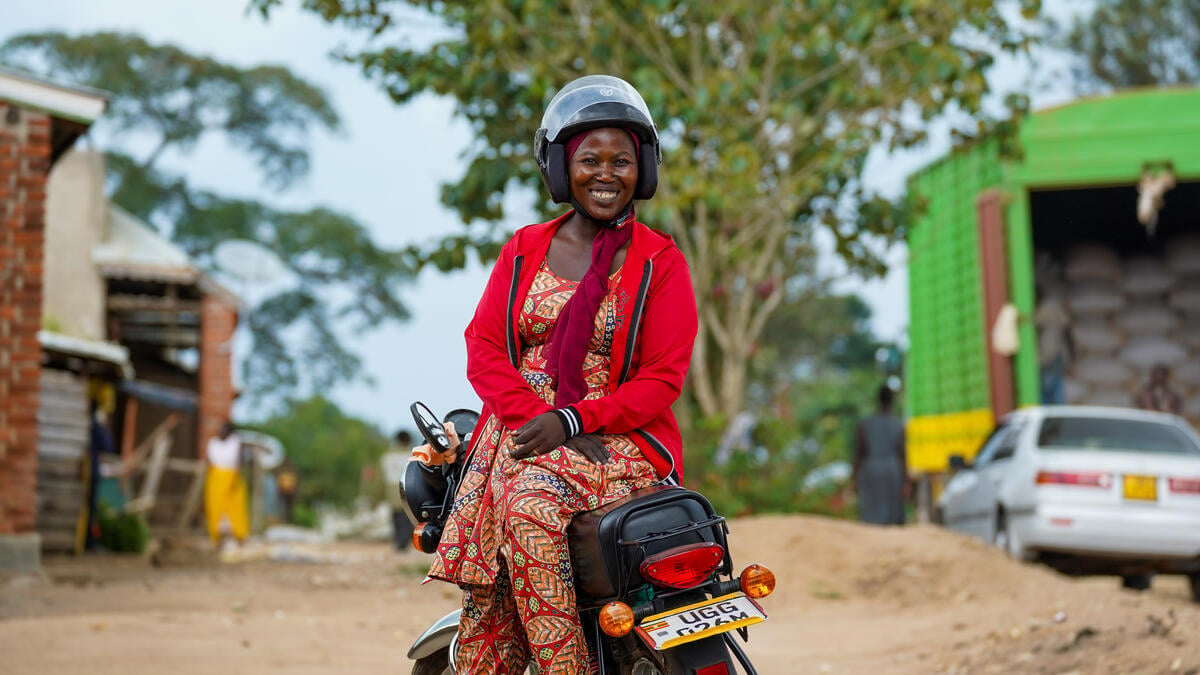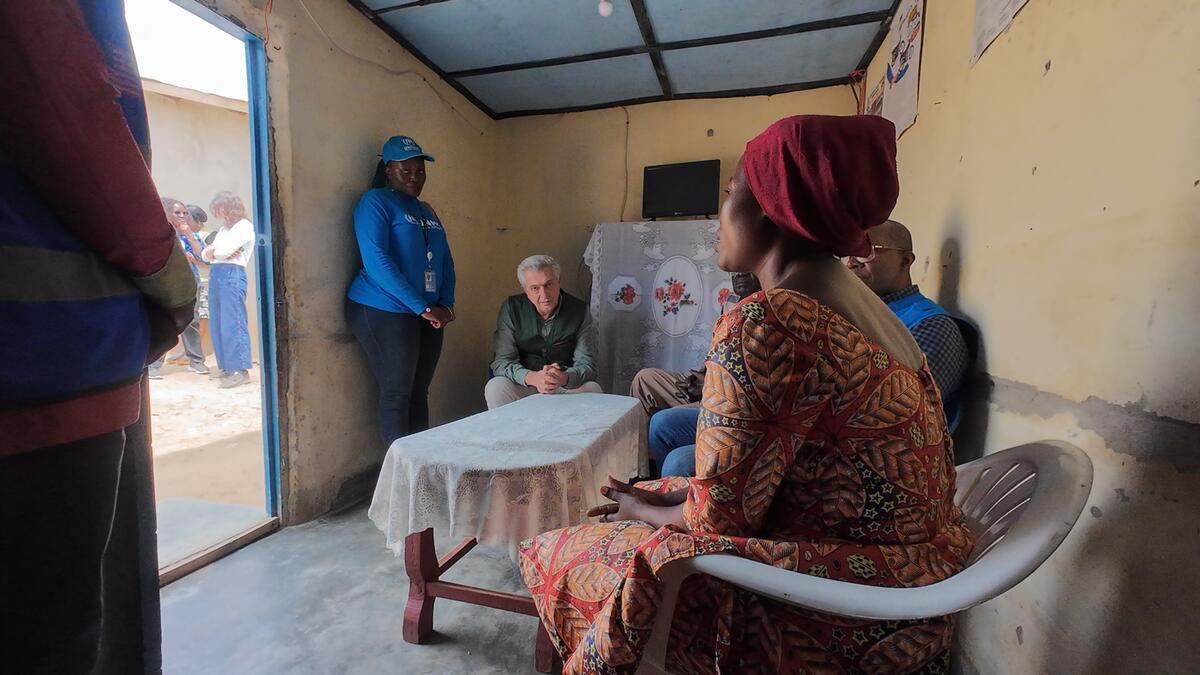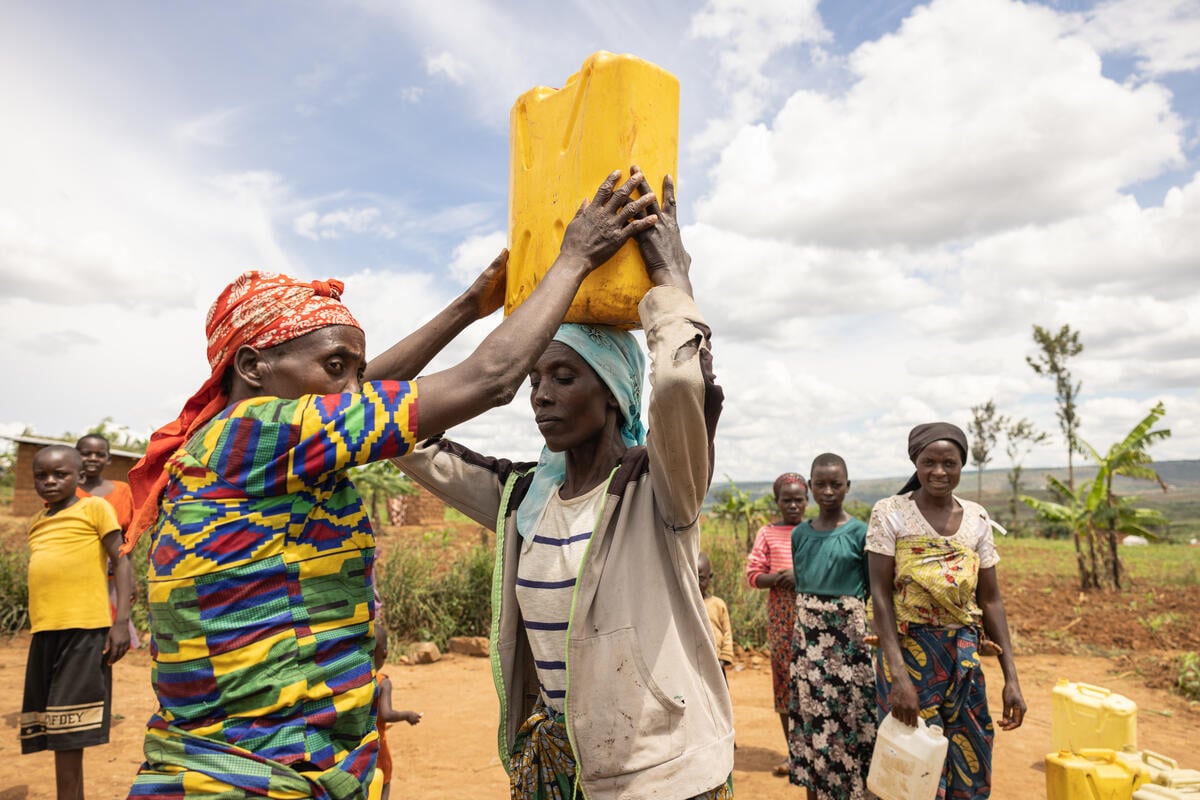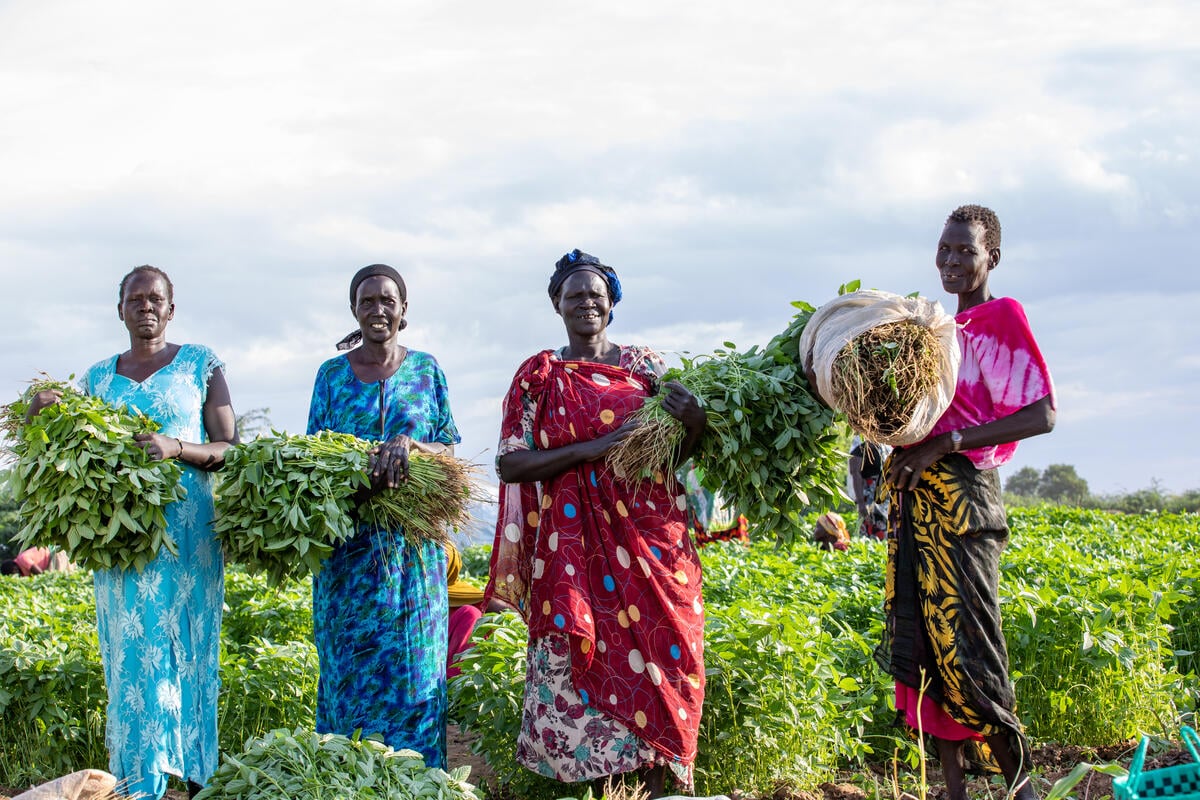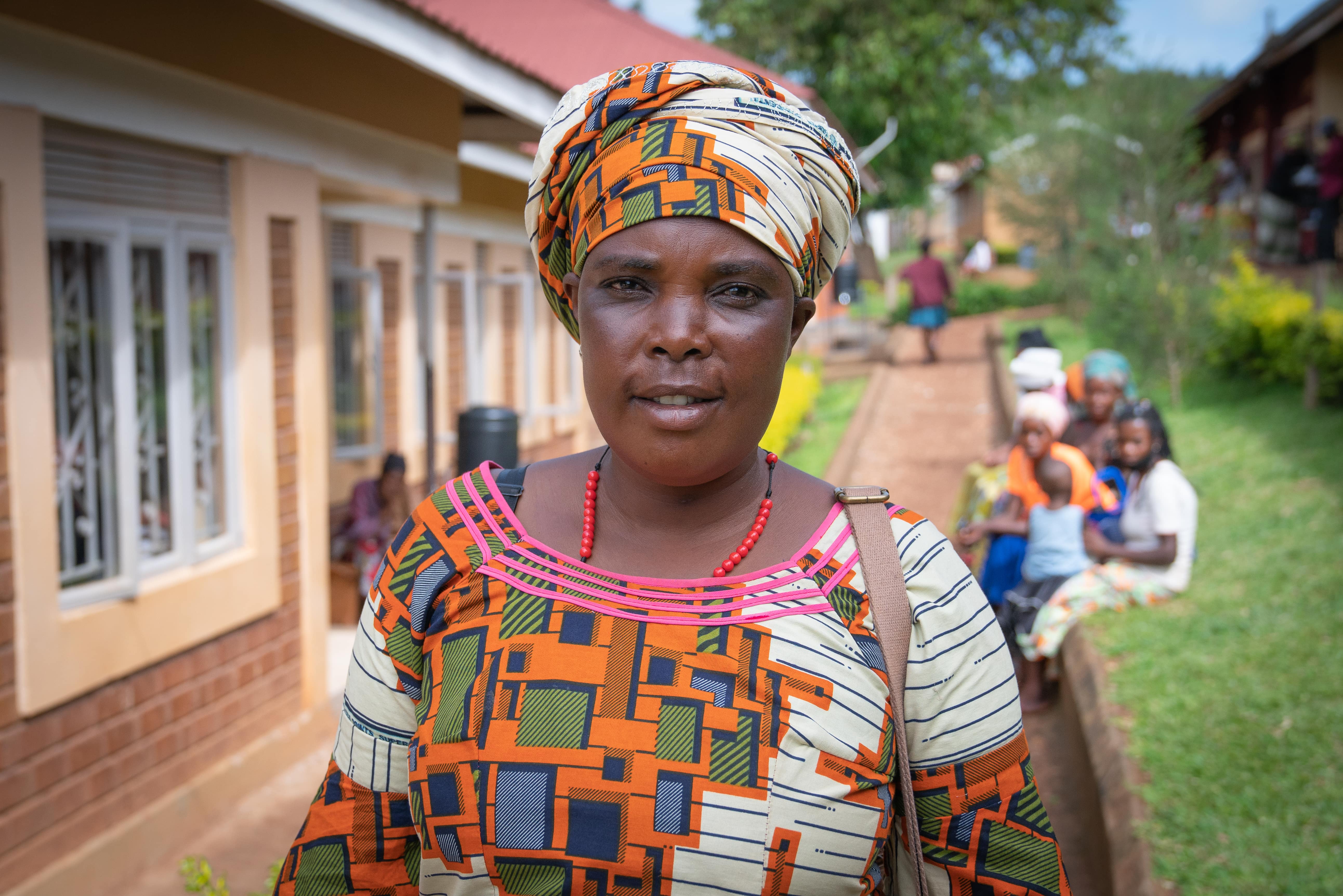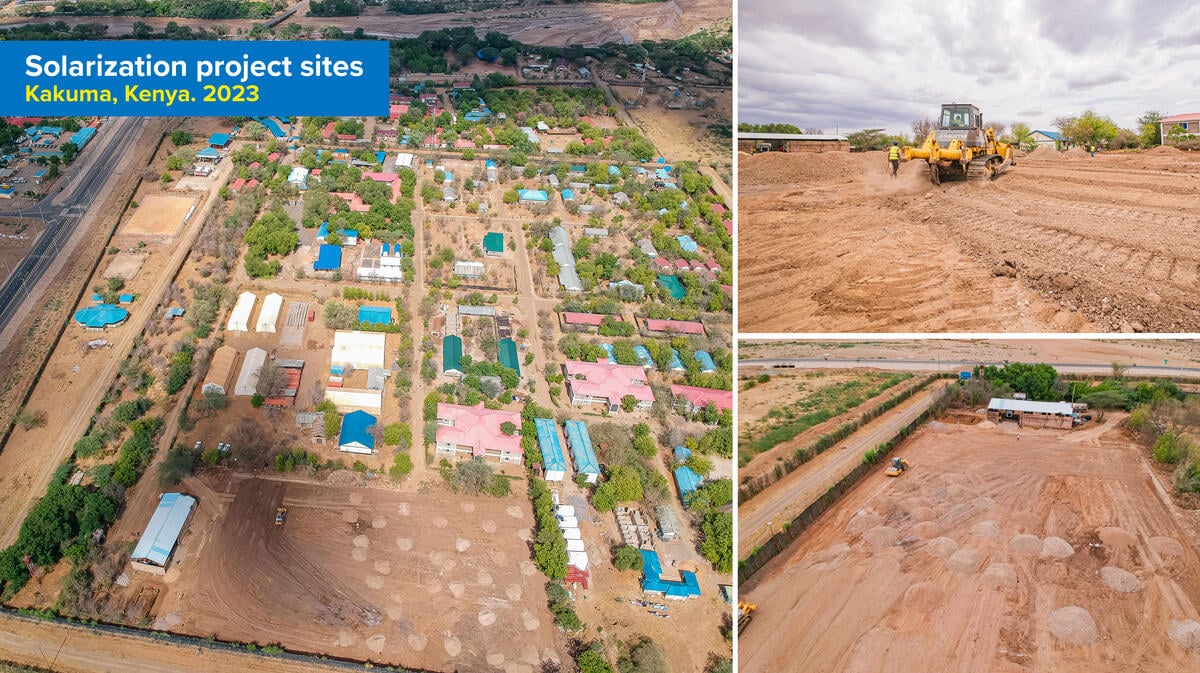Relocation underway for Sudanese refugees fleeing northern Uganda
Relocation underway for Sudanese refugees fleeing northern Uganda
KAMPALA, Uganda, August 9 (UNHCR) - The UN refugee agency's emergency relocation of Sudanese refugees uprooted after Monday's attack on a northern Uganda camp is well underway, with transport, relief supplies and assessment teams being dispatched in record time.
Monday's raid on Acholi-Pii refugee camp by the Lord's Liberation Army (LRA) killed at least 50 people, including 38 refugees, and sent 24,000 others fleeing into surrounding areas.
Fearing further rebel attacks, UNHCR on Tuesday evening told some 17,000 who had fled to the nearby town of Rachkoko to move on to Lira, led by Acholi-Pii's camp manager and escorted by tight police security. After trekking 60 km overnight, they arrived in Lira Wednesday afternoon, and were given food, medicine and blankets at an emergency reception centre in Boma.
On the same day, the first trucks left Lira for Kiryondongo, an existing refugee settlement of 13,000 people where the Acholi-Pii refugees are to be temporarily sheltered. In less than 24 hours, 40 truckloads took some 4,000 refugees to Kiryondongo, where up to 5,000 refugees had also arrived on their own. UNHCR plans to move 70-75 percent of the 20,000-strong group from Lira to Kiryondongo by the end of Friday.
The refugee agency has sent two staff members from the Ugandan capital of Kampala to Kiryondongo and three more to Lira to run the emergency operation. "The transfer is going pretty smoothly and we are hoping to complete it by Saturday," said Surendra Panday, UNHCR team leader for the emergency operation in Lira.
To absorb the inflow, Kiryondongo needs to upgrade its facilities quickly. UNHCR has already dispatched medicine to last 10,000 people for one month, and plans to set up an emergency hospital tent. The agency has also started registration in Kiryondongo to try and trace the 24,000 refugees who were in Acholi-Pii when the attack took place. Nearly 10,000 have already been registered.
Supplies of blankets, mattresses and jerry cans from regional stockpiles in Ngara, Tanzania - enough for 18,000 to 20,000 people - should reach Kampala by Saturday.
The Ugandan authorities have agreed to let UNHCR transfer the refugees to a more permanent site in Kyangwali, an existing refugee settlement of 6,800 Sudanese refugees, 100 km to the west of Kiryondongo and situated in a safe area near the shores of Lake Albert.
On Friday and Saturday, the refugee agency is sending two teams of experts to Kyangwali to demarcate new plots and assess the site's needs in terms of upgrading the water supply, health centre and other facilities that will be necessary to receive the new refugees.
UNHCR is also discussing with the Ugandan authorities on the possibility of setting up an additional site next to Kyangwali.


